Global Health Blogs
A Start-Up Hospital in Bangalore, India
By Srijesa Khasnabish, DO, PGY-2
Fitchburg Family Medicine Residency
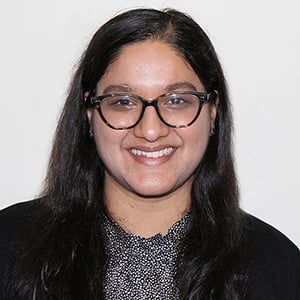
“The doctor from America will see you now.” This is not the first time this statement has been used to preface my entry into a hospital room. The last time I heard it was in 2016, when I was applying to medical school and shadowing at Mercy Hospital in Kolkata, India. Fast forward to 2024: I graduated with my medical degree eight months ago and am now (as an actual doctor) am entering the pediatric intensive care unit at DHEE Hospital in Bangalore, India.
Let me provide some context as to how I ended up here. I am in my second year of my Family Medicine residency program in the at UMass and on the Global Health Certificate Track. As a member of this program, I can to spend one month per year on a Global Health elective. Initially I was supposed to travel to Liberia with four co-residents, but a change of plans led me to India instead. My objectives entering the rotation were to build my clinical experience and learn about the structure of the healthcare system in India. The lessons learned spanned far beyond these two simple points.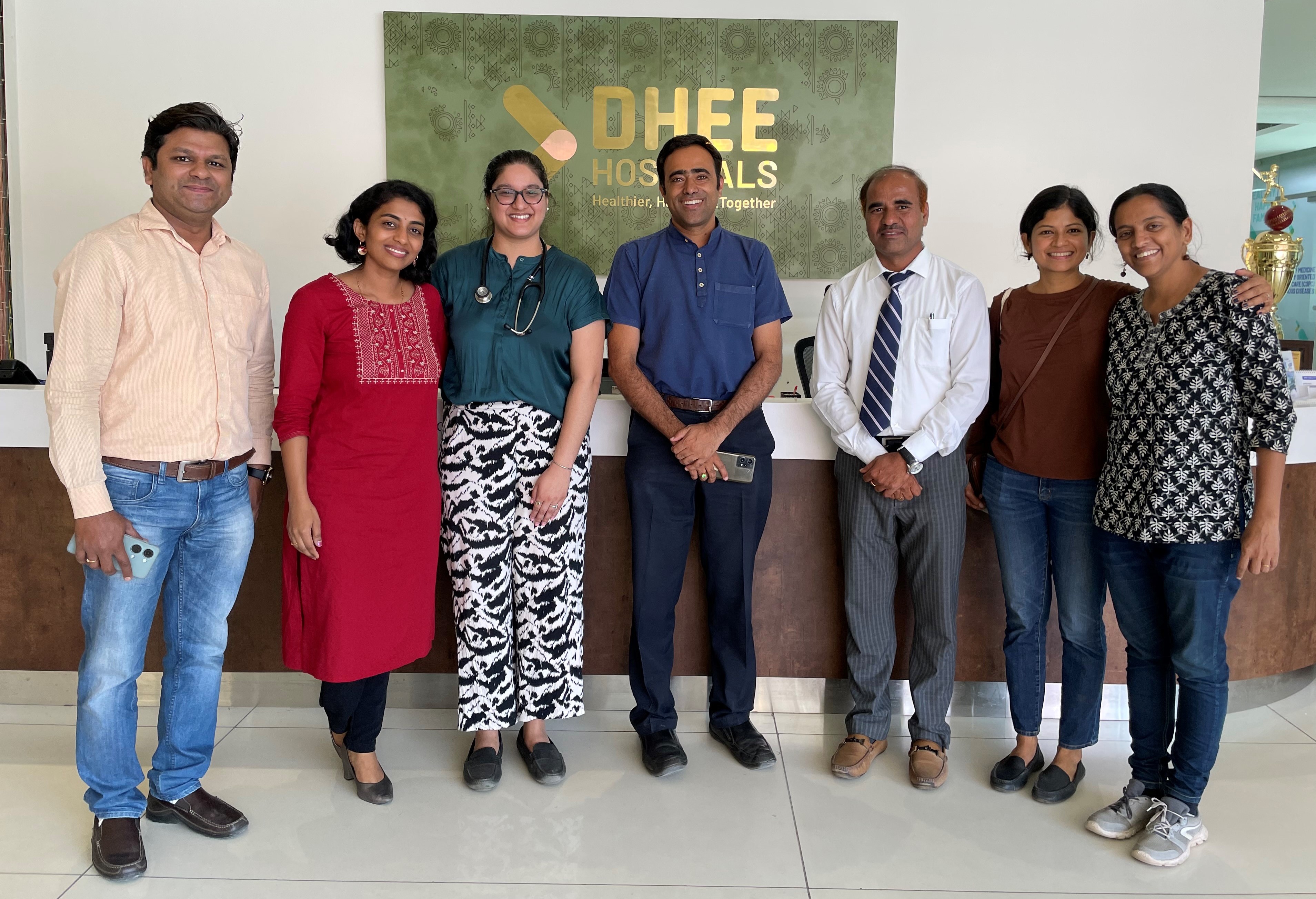
DHEE is a private start-up hospital that opened its outpatient services in May 2023. The Family Medicine department has two arms: an outpatient clinic and home care program (Svastha Community Care), together called the Community Oriented Primary Care (COPC) team. During my time in Bangalore, I worked with a family physician (Dr. Amrutha) at DHEE, another family physician (Dr. Ramakrishna Prasad) at PCMH restore health (mostly infectious disease patient populations).
I was impressed to learn of the National ART programs that exist in India, where each patient is linked to an ART case manager who helps them obtain their medications, attend appointments, and connect with support groups. I appreciated the interdisciplinary nature of the team I worked with at DHEE, which included an Ayurvedic physician (Dr. Santosh) and DPT (Dr. Colis).
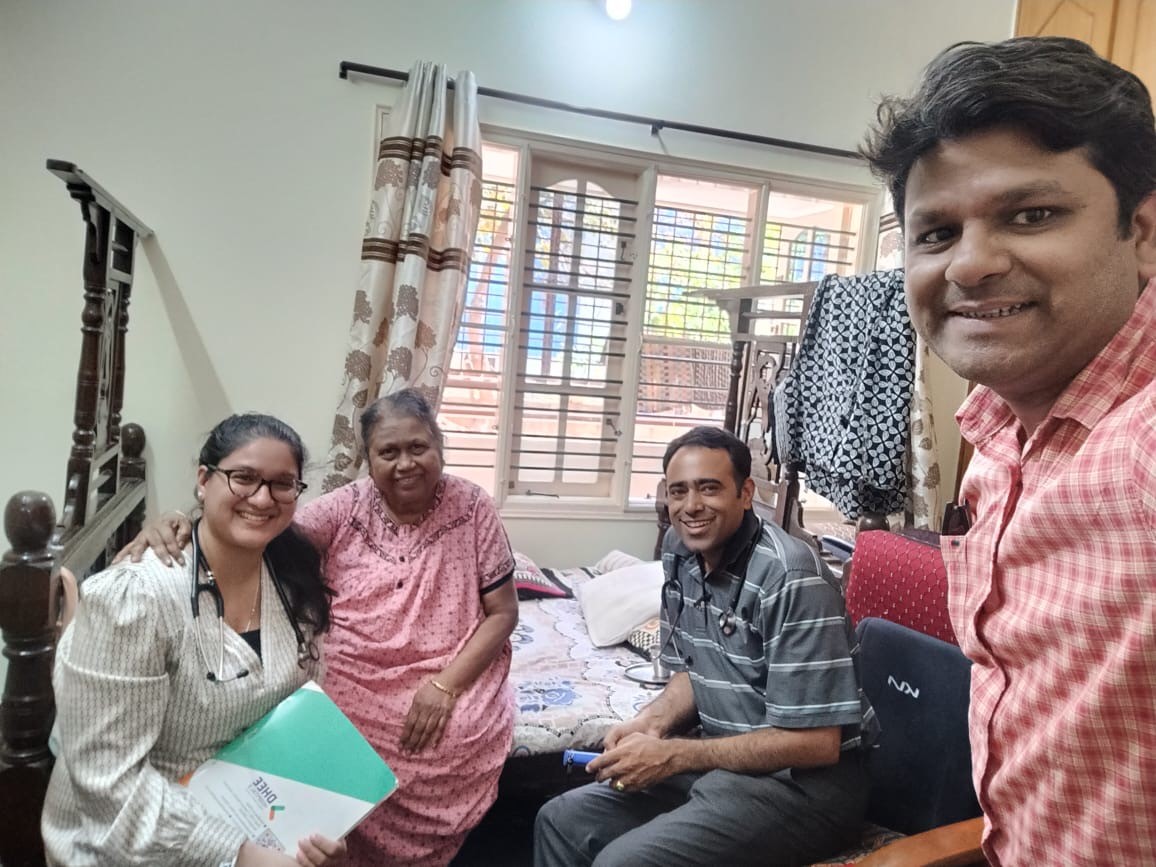
I also accompanied the team during home visits, during which I had the opportunity to assist with a paracentesis in palliative patient with cirrhosis. Because we didn’t have the equipment to hang the IV line for a concurrent albumin infusion, I suggested we tie it to the ceiling fan in the patient’s bedroom, which worked! I also had the opportunity to practice my Bengali language skills by work at the clinic of Dr. Roshni Jhan Ghanguly, where I saw pediatric patients for their well child checks to addressing polypharmacy in an older male patient recently diagnosed with renal clear cell carcinoma.
Being a new hospital, DHEE is working on building its patient population. The team is particularly focused on closing a gap in migrant and factory workers’ access to health care. To further explore this gap, I joined the team on a field visit in a migrant worker community called Peenya. While a successful clinic had already been established in this community, it was a good case study to understand the barriers to healthcare this particular population faces (particularly housing and food insecurity).
A Journey to Remember
By Abigail Gyamfi, MD
2024 graduate, Fitchburg Family Medicine Residency
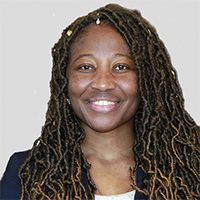
There are no words to describe how I looked forward with anticipation for my global health trip to Liberia and no words are enough to shed light on my experience in Liberia.
My time in the ER at the ELWA hospital in Monrovia, Libera working beside fellow Family Medicine residents, managing health concerns including DKA, CHF, HTN urgency/emergencies, and GIB to name a few, left me feeling awed by how much could be done to save lives with so little, not easy but they do their best. My OB/GYN experience left me amazed watching OB/Family Medicine residents independently perform surgeries and procedures and save lives due to complications in pregnancy and childbirth.
I have come to learn to listen and look at my patient more when it comes to care because it’s not every day that I will have the liberty of labs and diagnostic tools available to me. This realization also impressed upon me to help promote health equity as a provider because frankly, health inequality permeates our daily lives no matter where we find ourselves.
Overall, my time in Liberia was filled with great moments – be it in the ER, managing severe malaria, in the OR assisting with C-Section, performing neonatal resuscitative efforts, or getting on the Keke for the first time by myself to perform an errand, the pleasure of getting to know the people inside and outside the hospital – it’s an opportunity I will remember and treasure in this life of mine.
Monrovia, Liberia
By Beshoy Sidhom, MD
2021 graduate, Worcester Family Medicine Residency
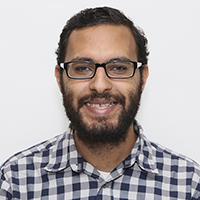
Coming into residency, I knew that I wanted to do global health work as part of my career.
UMass had the most generous global health track I encountered during my search, allowing us to go abroad for a month every year of residency. But what makes Barre even more special is that the rural setting with limited resources and managing very sick patients in clinic really prepared me for my global clinical experiences.
I was very fortunate this year to go to ELWA hospital in Monrovia, Liberia and spend a block there doing some clinical work, teaching, research, and mentoring. It was an incredible learning experience filled with many challenges. As a family doctor in Liberia, you are expected to do EVERYTHING for your patients and you must do it with the limited resources available. I was reminded almost daily by staff that “every discharge is a miracle.”
I was involved in neonatal resuscitation, taking care of children with malnutrition both inpatient and outpatient, triaging patients in the ED, managing adults with complex medical conditions (HIV/AIDS, malaria, hemorrhagic fever, tertiary syphilis, TB, hepatitis, severe anemia, GI bleeds, severe heart failure exacerbations, and septic shock, just to name a few), reading CT scans and X-rays, performing diagnostic bedside ultrasounds, performing complex procedures bedside, and even assisting with a vacuum delivery. But every step of the way, I felt that my educational experiences in residency had prepared me for the new challenge.
This experience taught me a lot about managing complex patients even when the resources are not available. I also learned a lot about diseases that we rarely see in the United States and how they are effectively managed. But I think the most impactful way this experience affected me was through learning to deal with death and loss despite our best efforts and appreciating when things go well because every discharge is a miracle.